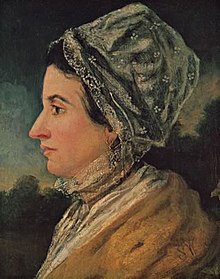 |
| The rock garden I built in 2016 |
The golden rule when building in the country is to find water first, and so my induction to rural living was the digging of a well in 2012.
I remember the heavy drilling equipment, monster-sized trucks and jacks and rigs etched imperiously against the blue of the Land of the Living Skies, like creatures of another world. I was she, giving the yea or nay to iron and men.
The crew remembered me for a different reason. Last summer my husband placed a call to the company that had drilled our well. As soon as he mentioned our highway intersection the contractor knew exactly which job was in question. It wasn’t the fact that I was a visible minority, though that helped too. The unique identifying factor was: “I remember that well because your wife screamed and freaked out when a tick walked up her pant leg.”
Visible and traumatized.
The well draws me.
But there’s one fact about it that I mull on often. Water was found at the 130 feet depth.
A long iron shaft projecting one foot above the ground runs into the bowels of the earth. A pump inside the shaft brings the water to the surface.
My well. I’m a woman with a well.
 |
| Picture courtesy Google Images |
I had romantic notions of creating an archway of morning glory flowers between the shrubs leading to the well. I had planned to construct a circular brick wall around the shaft with the daintiest of peaked shingle roofs as I had seen on Pinterest. I was sure of my skills as I had created something similar for my backyard when I lived in the city. Closer home, a neighbour had an enviable structure, and my dream sprouted wings.
Until the pump had to be changed in 2018, a year after taking up residence at the acreage. For days a rig rose vertically above the shaft, jarring the blue skyline. The pump lodged at 109 feet down needed similar height above to pull it out and replace the new. Machinery had to be laid flat on the surface at right angles to the shaft. Metres and metres of wire coated in rainbow colours coiled smack dab to the shaft.
My brick wall and peaked roof faced death as my husband explained that practicality must prevail for the well. I did not reply.
Three months later another pump had to be changed, and I came face to face with the distressing reality that our well was not meant to be Pinterest-worthy. Those fashionable structures needed an entirely different kind of well, one with diameter of a couple of feet, not the 6-inches of the narrow shaft we had.
That day I replied. That day I bade my vision of rocks and roof a tender farewell. I still see the charming peak—in my mind. But when I look through the patio doors my eyes take in an inverted blue barrel. My husband secured the shaft with the practical shelter that cannot in any way, shape or form, be remotely considered romantic.
Perhaps romance was not meant to be. But Eternity is.
In John 4:4-42 we read about Jesus’ conversation with a Samaritan woman who had come to get water from a well. She gives Him liquid water and He gives her Living water. She quenches His physical thirst, and He, her spiritual.
My experience with our well is reminiscent of the deep, deep drilling into our souls to tap into the water of life.
Thirty feet couldn’t do it. Fifty feet was too shallow. Ninety feet was not deep enough. It had to be tapped at 130 feet where it would gush to the pump, and the pump would pressure it to our house.
 |
| Blue barrel replaced the dream |
The deep drilling through sickness and grinding on the wheel of life calls for the refreshing cool. But this is not attained easily. The refining comes over years of trials and suffering, moments not worthy of pictures. But they are moments that supersede a photo-op. They are moments that build our faith, painstakingly, to culminate in an overpowering of the pressures, and we break through with clean, clear water. Becoming reservoirs of hope, houses of encouragement, wells of life.
I’ve been to the well and found the Saviour. Now, I own the well and lead the world to Him from an acreage on the Land of the Living Skies.
This, I’ve discovered, is both romantic and eternal.
Susan Harris hosts ETERNITY on Access7 television and her messages can be accessed on YouTube. Visit here website at www.susanharris.ca
Her recent release is Touched By Eternity: A True Story of Heaven, Healing, and Angels and is available at Chapters/Indigo Amazon, Barnes &Noble, etc where books are available.
Paperback ISBN 978-0-9949869-4-8
Ebook ISBN 978-0-9949869-6-2























